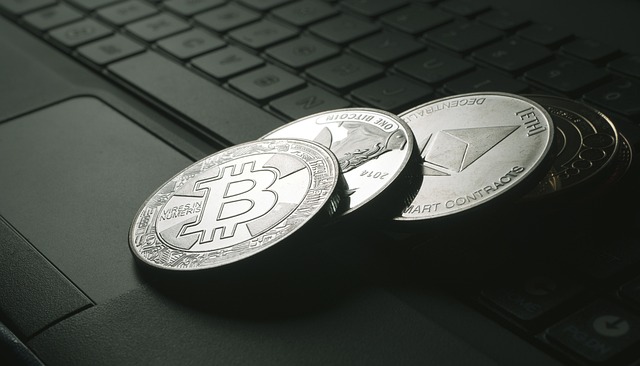
Cryptocurrency has been making headlines for its revolutionary impact on the financial world.
However, for many people, it remains a complex and mysterious concept. If you find yourself feeling lost and confused when it comes to cryptocurrency, you’re not alone.
The world of digital money can seem daunting at first, but once you understand the basics, you’ll see that it’s not as complicated as it seems.
In this blog post, we’ll demystify cryptocurrency and break down everything you need to know to understand this new form of digital money.

What is Cryptocurrency?
Cryptocurrency is a digital or virtual form of money that utilizes cryptography for secure transactions, control the creation of new units, and verify the transfer of assets.
It is a decentralized form of currency that operates on a technology called blockchain.
So, what is cryptocurrency exactly? At its core, it is a type of digital currency that exists only in electronic form.
Unlike traditional currencies issued by central banks, such as the US dollar or euro, cryptocurrencies are not controlled by any central authority.
Instead, they rely on a decentralized network of computers that work together to maintain the integrity of the system.
Bitcoin, the first cryptocurrency, was created in 2009 by an anonymous individual or group known as Satoshi Nakamoto.
Since then, thousands of other cryptocurrencies, often referred to as altcoins, have been developed, each with its own unique features and purposes.
Cryptocurrencies work on the principle of a public ledger called the blockchain. The blockchain records all transactions made with a particular cryptocurrency, ensuring transparency and preventing double-spending.
Miners play a crucial role in the cryptocurrency ecosystem, as they use their computing power to solve complex mathematical problems and validate transactions.
Mining is a process in which transactions are verified and added to the blockchain, and new coins are created. Bitcoin mining, for example, involves using powerful computers to solve mathematical puzzles, which helps maintain the security and integrity of the network.

The Evolution of Cryptocurrency: From Bitcoin to Altcoins
Cryptocurrency has come a long way since its inception with the creation of Bitcoin in 2009.
Bitcoin, often referred to as the pioneer of cryptocurrencies, introduced the world to the concept of decentralized digital currency.
It brought with it the promise of a financial system that bypassed traditional banks and governments, offering users greater control over their money and transactions.
Bitcoin’s success led to the rise of countless other cryptocurrencies, known as altcoins.
Each altcoin was developed with its own unique features and purposes, offering users alternative options beyond Bitcoin.
Some of the most popular altcoins include Ethereum, Ripple, Litecoin, and Cardano.
So, what is Bitcoin exactly? It is a decentralized digital currency that operates on a technology called blockchain.
Blockchain is a public ledger that records all transactions made with a particular cryptocurrency, ensuring transparency and preventing fraud.
As Bitcoin gained popularity, developers began to experiment with different variations of cryptocurrency, leading to the creation of altcoins.
Ethereum, for example, introduced the concept of smart contracts, which are self-executing contracts with predefined rules and conditions.
This opened up a world of possibilities for applications beyond simple transactions, such as decentralized finance and decentralized applications.
Mining is a crucial aspect of the evolution of cryptocurrencies.
While Bitcoin mining involves solving complex mathematical problems, altcoins like Ethereum introduced a new concept called proof of stake.
Instead of relying on computational power, proof of stake allows users to validate transactions based on the number of coins they hold.
This shift in mining algorithms has made altcoins more energy-efficient and accessible to a wider range of users.

How Cryptocurrencies Work
Cryptocurrencies have taken the world by storm, but how do they actually work?
In this section, we’ll dive into the inner workings of cryptocurrencies and explain the processes behind them.
First, let’s start with the basics. Bitcoin, the pioneer of cryptocurrencies, introduced the concept of decentralized digital currency.
It operates on a technology called blockchain, which is a public ledger that records all transactions made with a particular cryptocurrency. This ensures transparency and prevents fraud.
So, what is Bitcoin exactly? It’s a decentralized digital currency that operates on the blockchain.
It uses complex mathematical algorithms to verify transactions and secure the network. This process is known as mining.
Mining is essential to the functioning of cryptocurrencies like Bitcoin.
It involves using powerful computers to solve mathematical puzzles, which validates transactions and adds them to the blockchain.
Miners are rewarded with newly minted coins for their efforts.
But it’s not just Bitcoin that can be mined. Ethereum, one of the most popular altcoins, introduced a different approach called proof of stake.
Instead of relying on computational power, Ethereum allows users to validate transactions based on the number of coins they hold.
This shift in mining algorithms has made altcoins more energy-efficient and accessible to a wider range of users.
In summary, cryptocurrencies like Bitcoin and Ethereum operate on a decentralized network, using blockchain technology to record and verify transactions.
Miners play a vital role in securing the network and maintaining the integrity of the system.
Whether it’s through mining or other validation methods, the underlying principles of cryptocurrencies are revolutionizing the way we think about money and finance.

Investing in Cryptocurrency: Risks and Rewards
Investing in cryptocurrency can be an exciting and potentially lucrative venture, but it also comes with its fair share of risks.
It’s important to understand these risks and weigh them against the potential rewards before diving into the world of digital currency.
One of the main risks of investing in cryptocurrency is its volatility. The price of cryptocurrencies can fluctuate wildly, often in a matter of minutes.
This volatility can result in significant gains, but it can also lead to substantial losses. It’s crucial to be prepared for this level of volatility and to only invest what you can afford to lose.
Another risk to consider is the security of your investments. While blockchain technology provides a high level of security, the same cannot always be said for cryptocurrency exchanges.
Hacks and security breaches have occurred in the past, leading to the loss of millions of dollars worth of digital currency.
It’s essential to choose a reputable and secure exchange and to take additional measures, such as using hardware wallets, to safeguard your investments.
Additionally, the regulatory environment surrounding cryptocurrency can be uncertain and vary from country to country.
Changes in regulations can impact the value and accessibility of cryptocurrencies. It’s important to stay informed about regulatory developments and how they may affect your investments.
Despite these risks, investing in cryptocurrency can offer substantial rewards. Many early investors in Bitcoin and other cryptocurrencies have seen their investments multiply exponentially.
Cryptocurrencies also offer the potential for diversification and the opportunity to invest in emerging technologies and industries.
If you’re interested in investing in cryptocurrency, it’s crucial to do your research, stay informed, and seek advice from reputable sources.
Educate yourself on what cryptocurrency is and how it works, including concepts such as mining Ethereum.
Set realistic expectations and be prepared for the inherent risks. With careful consideration and a strategic approach, investing in cryptocurrency can be a rewarding endeavor.

The Future of Cryptocurrency
As we look to the future, the potential for cryptocurrency is limitless.
With its decentralized nature and groundbreaking technology, it has the power to disrupt traditional financial systems and reshape the global economy.
One of the key areas where cryptocurrency is expected to have a significant impact is in the world of finance.
As more individuals and institutions embrace digital currencies, we can expect to see a shift towards a more inclusive and accessible financial system.
Cryptocurrency has the potential to provide financial services to the unbanked and underbanked populations, who have historically been excluded from traditional banking systems.
Furthermore, the rise of cryptocurrencies like Bitcoin and Ethereum has opened up new opportunities for innovation.
Smart contracts, powered by blockchain technology, have the potential to revolutionize industries such as real estate, supply chain management, and healthcare.
These self-executing contracts have predefined rules and conditions, eliminating the need for intermediaries and streamlining processes.
In addition to its impact on finance and industry, cryptocurrency also has the potential to reshape the global economy.
As more countries and businesses explore the use of digital currencies, we may see a shift towards a more borderless and interconnected global financial system.
Cryptocurrencies have the potential to reduce friction in cross-border transactions, lower transaction costs, and promote economic growth.
To fully understand the future of cryptocurrency, it is essential to continue educating ourselves on what cryptocurrency is and how it works.
By staying informed and keeping up with technological advancements, we can better position ourselves to navigate the ever-changing landscape of digital currencies.

How to Get Started with Cryptocurrency
So, you’ve decided to take the plunge into the world of cryptocurrency. Congratulations! But where do you start?
Don’t worry, I’ve got you covered. In this section, I’ll walk you through the essential steps to get started with cryptocurrency.
First things first, it’s crucial to understand what cryptocurrency is and how it works. As we discussed earlier, cryptocurrency is a digital form of money that operates on a decentralized network called blockchain.
It uses cryptography for secure transactions and relies on miners to validate and record transactions.
To get started, you’ll need a digital wallet to store your cryptocurrency. Think of it as a virtual bank account.
There are different types of wallets available, such as software wallets, hardware wallets, and online wallets.
Each has its own pros and cons, so do your research and choose the one that suits your needs best.
Once you have your wallet, the next step is to acquire some cryptocurrency. The most common way to do this is by purchasing it from a cryptocurrency exchange.
These exchanges allow you to buy and sell various cryptocurrencies using traditional fiat currencies, such as the US dollar or euro.
Just make sure to choose a reputable exchange with good security measures in place.
If you’re feeling more adventurous, you can also try your hand at mining cryptocurrency.
While mining Bitcoin may require specialized equipment and a significant investment, there are other cryptocurrencies like Ethereum that can be mined using regular computers.
Research how to mine Ethereum and see if it’s something you’re interested in.
Lastly, stay informed and educate yourself about the latest developments in the cryptocurrency space. Join online communities, read news articles, and follow reputable sources on social media.
Cryptocurrency is a rapidly evolving field, and staying up to date will help you make informed decisions and navigate the market more effectively.
So, there you have it. With these steps, you’re well on your way to getting started with cryptocurrency.
Remember, it’s essential to do your research, start small, and only invest what you can afford to lose. Good luck on your cryptocurrency journey!

The Impact of Cryptocurrency on the Global Economy
Cryptocurrency has the potential to significantly impact the global economy in numerous ways. Its decentralized nature and groundbreaking technology make it a game-changer for traditional financial systems.
One of the main impacts of cryptocurrency on the global economy is its ability to provide financial services to the unbanked and underbanked populations.
These are individuals who have historically been excluded from traditional banking systems due to various reasons such as lack of documentation or geographic location.
With cryptocurrency, individuals can access financial services without the need for a traditional bank account, opening up new opportunities for financial inclusion and economic empowerment.
Furthermore, cryptocurrency has the potential to streamline cross-border transactions and reduce transaction costs.
Currently, sending money internationally can be expensive and time-consuming, with multiple intermediaries involved.
Cryptocurrencies, on the other hand, can facilitate faster and cheaper transactions, making global commerce more efficient and accessible.
Additionally, the rise of blockchain technology, the underlying technology behind cryptocurrencies, has the potential to revolutionize industries such as supply chain management and healthcare.
Blockchain can provide a transparent and tamper-proof record of transactions and data, improving efficiency, reducing fraud, and enhancing trust in these industries.
As more countries and businesses explore the use of digital currencies, we may see a shift towards a more borderless and interconnected global financial system.
This could lead to increased economic growth and innovation as barriers to international trade and investment are reduced.

Final Thoughts on Understanding Cryptocurrency
Understanding cryptocurrency can seem overwhelming at first, but with a little knowledge and research, you can navigate this new world of digital money with confidence.
In this blog post, we’ve covered the basics of what cryptocurrency is, how it works, and its potential impact on the global economy.
But before we conclude, let’s recap some key takeaways and provide you with some final thoughts.
Cryptocurrency, at its core, is a decentralized form of digital currency that operates on a technology called blockchain.
It offers a range of benefits, such as faster and cheaper cross-border transactions, financial inclusion for the unbanked and underbanked populations, and the potential for innovative applications in various industries.
If you’re interested in getting started with cryptocurrency, there are a few essential steps you need to take.
First, educate yourself on what cryptocurrency is and how it works. Understand concepts like mining Ethereum, which can be a potential way to acquire digital currency.
Once you feel ready, obtain a digital wallet to store your cryptocurrency and choose a reputable exchange to buy or sell it.
Remember to start small and only invest what you can afford to lose. Stay informed about the latest developments in the cryptocurrency space, as it is a rapidly evolving field.
In conclusion, cryptocurrency has the potential to revolutionize the global economy, providing financial services to the unbanked, streamlining cross-border transactions, and driving innovation in various industries.
By understanding the basics of what cryptocurrency is and how it works, you can position yourself to take advantage of the opportunities it presents.
So, embrace this exciting new world of digital money, and remember to approach it with caution, curiosity, and a willingness to learn. Happy investing!